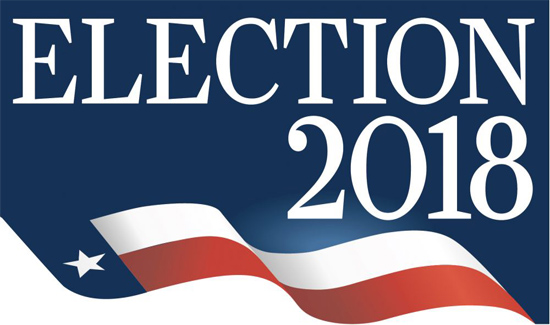What History Tells Us About Mid-Term Elections

By Jeff Lord
Come next Tuesday night, the drama of this election season will have a page turned.
The votes will be in – and the arguments will, as is always the case, go on.
While even some combination of a crystal ball and a mind-reader may get the results wrong ahead of time, the history of midterm elections can provide something of a guide for 2018.
Let’s start with the basics.
Since 1938 – President Franklin Roosevelt’s second set of midterms – every single president of the United States of both parties has been routinely clobbered in these elections — with three exceptions.
And those exceptions are instructive. They are:
- 1962: President John F. Kennedy, fresh off a successful showdown with Russia’s Nikita Khrushchev in the hair-raising Cuban Missile Crisis, saw his party triumph as accolades for JFK’s staring down the Soviets and averting a nuclear World War III poured in.
- 1998: With President Clinton’s Lewinsky affair and an investigation by Independent Counsel Ken Starr in full swing, Republicans ran on a platform of impeaching the President. In an upset, they were defeated, causing the resignation of House GOP Speaker Newt Gingrich.
- 2002: With the horror of 9/11 barely a year distant, and war looming against Saddam Hussein’s Iraq, in a reaction not unlike the one to JFK in 1962, Americans rallied to President George W. Bush and his party, giving them continued control of the House and restored control of the Senate.
Other than those three exceptions – all of them revolving around sudden, unexpected circumstance that caused voters to rally to the President of the day – every single president beginning with FDR in 1938 has gotten clobbered in their midterms.
To be precise that includes FDR (1938 and 1942); Truman (1946 and 1950); Eisenhower (1954 and 1958); Lyndon Johnson (1966); Nixon (1970); Ford (1974); Carter (1978); Reagan (1982 and 1986); George H.W. Bush (1990)’ Clinton (1994 but not 1998); George W. Bush (2006 but not 2002), and Barack Obama (2010 and 2014).
So with history as a guide, President Donald Trump and his Republicans are facing an uphill battle next Tuesday.
This election season has now produced not one but four exceptional events – anyone of which, not to mention collectively, could help Trump and the GOP – or the reverse. Those four events are:
- The Kavanaugh hearings and the confirmation battle over the Supeme Court’s new Justice.
- The caravan of thousands determined to cross the US border.
- The lunacy of would-be pipe bomber Cesar Sayoc.
- The horrifying massacre by the visceral anti-Semite Robert Bowers in Pittsburgh.
In fact, in the days immediately following the close of the Kavanaugh episode numerous Republican leaders and pollsters verified that the hearings had in fact “energized” the GOP/Trump base.
Three dramatic events after that, its anyone’s guess as to how any not to mention all of these four events combined will affect the outcome, particularly since early voting in various states had begun before all four events had materialized.
There is also one other interesting fact of history about midterms, specifically the first set of midterms in a presidential tenure.
If there is a defeat for the President of the moment and his party, political prognosticators invariably use that defeat to insist it means bad news for the president’s own presumed re-election bid two years later.
In fact, history shows happens rarely and in fact can be wildly wrong as a predictive for a president’s re-election.
After enduring all kinds of negative headlines and stories about their party’s midterm trouncing, Presidents Roosevelt, Truman, Eisenhower, Nixon, Reagan, Clinton and Obama all came back to win solid re-election victories.
In 1982, Reagan’s GOP was so soundly defeated that some analysts predicted the Gipper wouldn’t even run for re-election in 1984. He did – and carried 49 of 50 states.
In other words?
No one knows for sure what is going to happen next Tuesday. But one can say with relative historical certainty that with not one but four highly dramatic very recent events on the minds of voters as they go to the polls, anything – anything – can happen.
As my friend from my own Franklin and Marshall College, Terry Madonna, and his colleague, Michael Young, said in their latest Politically Uncorrected column, quoting that ageless ever-wise late sage of the New York Yankees, Yogi Berra: “It’s tough to make predictions, especially about the future.“
Yogi was right. Stay tuned.






